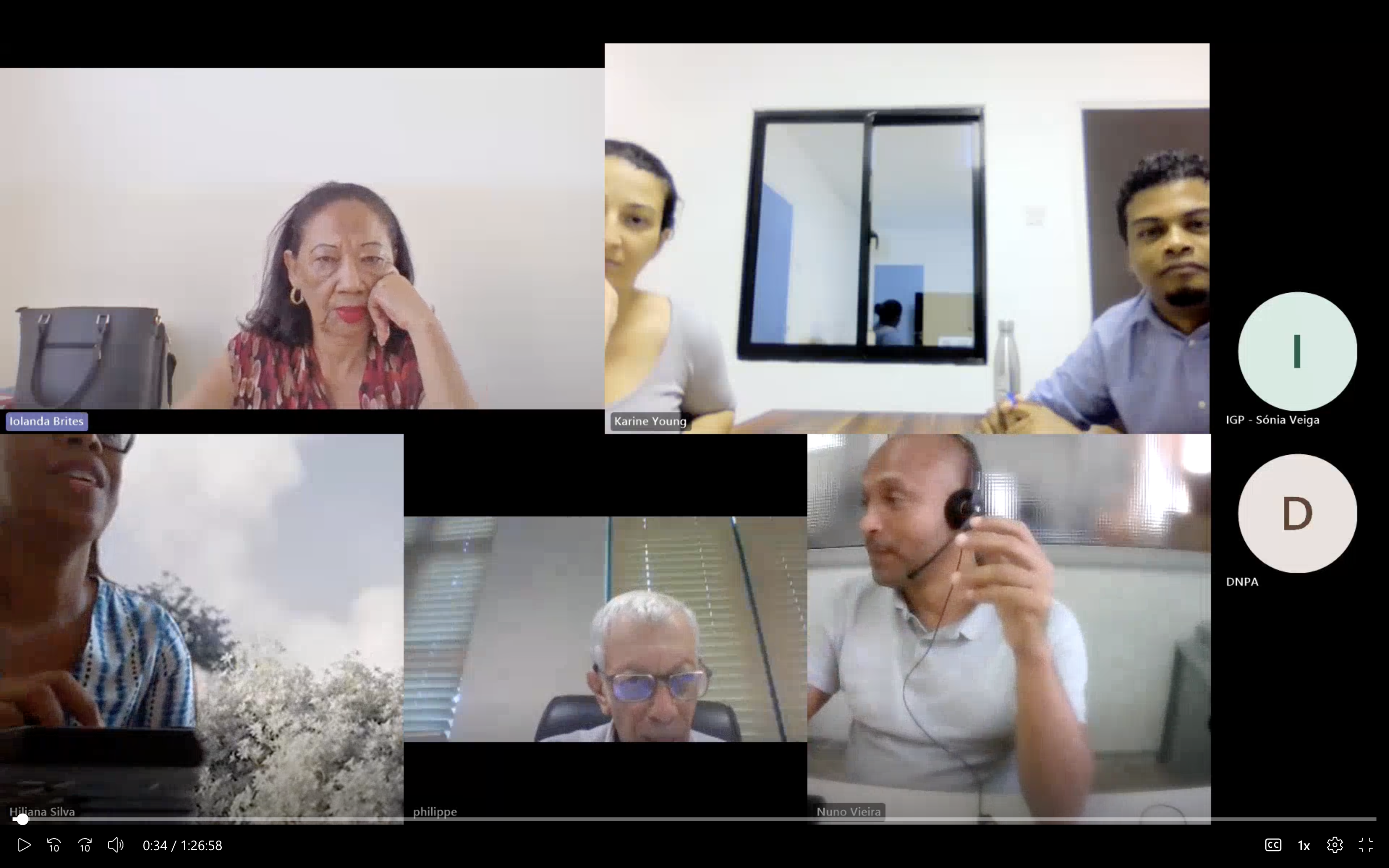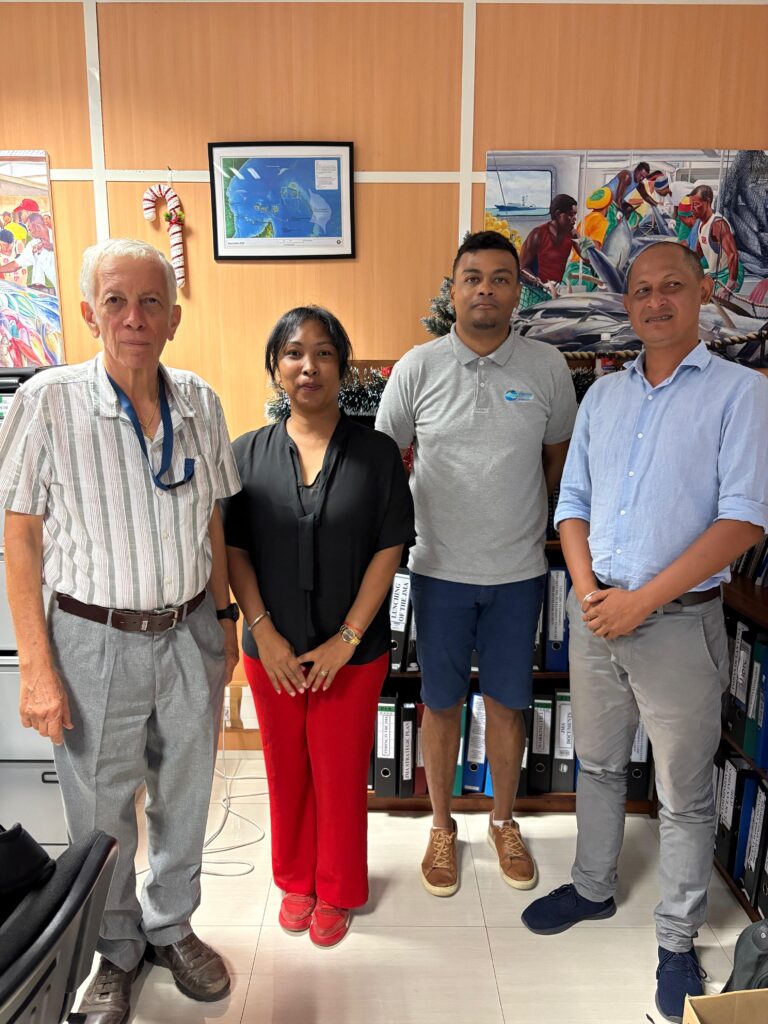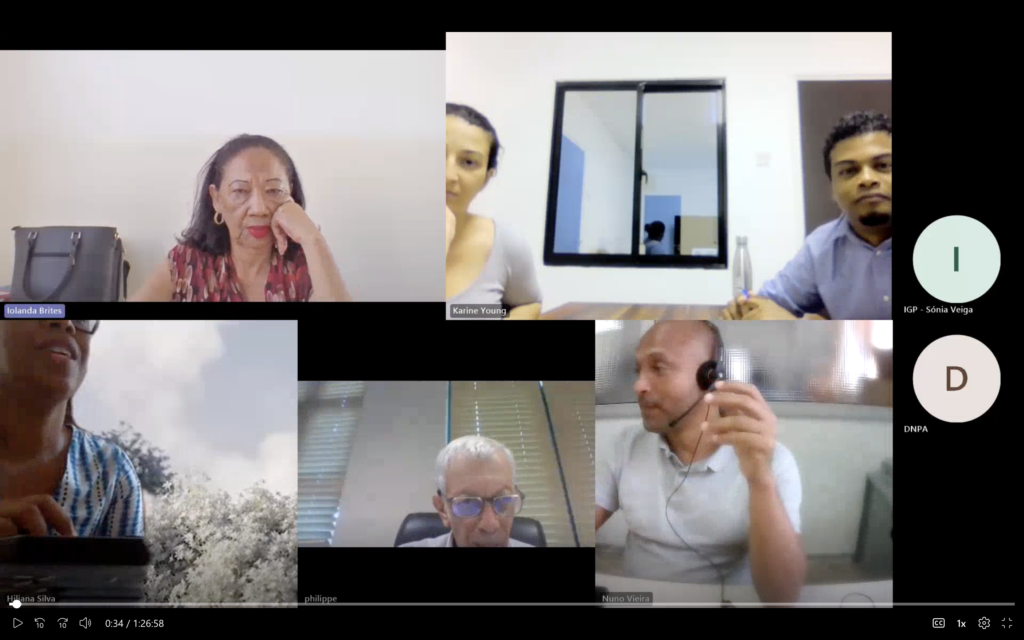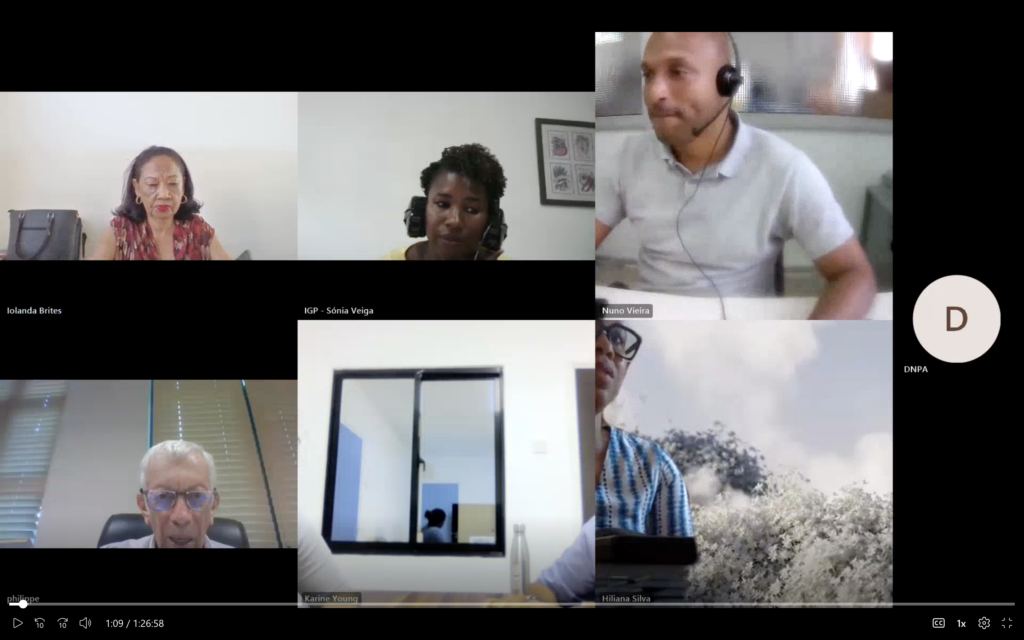Strengthening fisheries governance: Collaboration across regions

On 19 November 2024, stakeholders from Seychelles and Cabo Verde engaged in a virtual exchange organized for their respective Fisheries Transparency Initiative (FiTI) National Leads and Secretariats. This first-of-its-kind meeting facilitated the sharing of experiences and lessons from their FiTI implementation journeys. By focusing on successes, challenges, and shared solutions, the session highlighted the transformative potential of cross-border collaboration in advancing transparency and sustainable governance in fisheries.
During the exchange, Mr Philippe Michaud, Seychelles’ FiTI Lead, emphasized the importance of political continuity in supporting the FiTI process. He noted that despite a change in government, there has been unwavering support for transparency in fisheries governance. Mrs Iolanda Brites, FiTI Lead for Cabo Verde, echoed this sentiment, describing FiTI as an important tool for understanding the interconnected challenges of the fisheries sector.
As small island developing states, both Seychelles and Cabo Verde rely heavily on the health and sustainability of their fisheries for food security, livelihoods, and economic stability. Their shared dependency has fostered a spirit of cooperation, with both nations eager to learn from each other and tackle common challenges.
The Seychelles team highlighted recent strides in stakeholder engagement and initiatives to improve governance but also acknowledged challenges such as stakeholder fatigue and resource limitations. Similarly, Cabo Verde detailed efforts to enhance data transparency and foster stakeholder collaboration while grappling with similar issues. Both nations emphasized the importance of fostering trust and ensuring meaningful public participation in sustainable fisheries discussions.
One notable outcome of this exchange was the shared enthusiasm for more frequent knowledge-sharing sessions among FiTI-implementing countries. Both Seychelles and Cabo Verde expressed interest in joint workshops and collaborative initiatives to build capacity and adapt effective approaches. Additionally, they identified opportunities to pool resources for FiTI-related activities, enhancing stakeholder engagement and strengthening governance frameworks.
These back-to-back meetings showcased the transformative power of collaboration in fisheries governance. Whether through regional solidarity between Seychelles and Madagascar or cross-border exchanges with Cabo Verde, the focus on transparency and is setting an example for sustainable marine stewardship. By fostering trust, accountability, and inclusive resource management, these partnerships are contributing to a broader vision of resilient and sustainable fisheries.
Cross-Border Knowledge Sharing: Seychelles’ and Madagascar’s Collaborative Exchange
One week later, on 26 November 2024, the Seychelles FiTI Lead and Madagascar National Secretariat convened for a pivotal meeting aimed at strengthening regional collaboration in fisheries transparency. This exchange marked a significant step in aligning their efforts toward sustainable governance of marine resources in the Western Indian Ocean. Both teams shared insights into their roles within the FiTI and discussed strategies for overcoming challenges and driving transparency forward.
The meeting provided a platform for exchanging updates on national progress, candidly addressing shared obstacles such as stakeholder engagement and resource constraints and exploring joint initiatives. A key outcome was a commitment to ongoing dialogue and regular exchanges, paving the way for the sharing of best practices and mutual support. By uniting their efforts, Seychelles and Madagascar underscored the importance of regional solidarity, building a stronger, collective voice for sustainable fisheries management. This collaboration reflects shared goals and an understanding that transparency is vital for preserving marine resources for future generations.
As FiTI candidate countries, Seychelles, Madagascar, and Cabo Verde are reaping the benefits of collaboration. Their shared commitment to transparency and mutual support reinforces the potential of small island states to lead by example in marine governance, ensuring that fisheries continue to support livelihoods, protect biodiversity, and sustain economies for generations to come.


